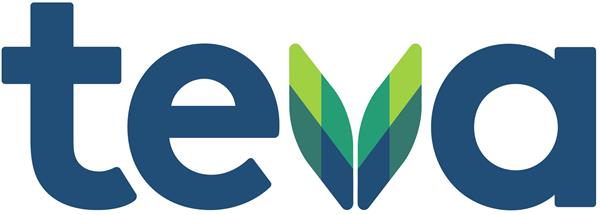
Teva Presents Latest Schizophrenia Treatment Research, Including Phase 3 SOLARIS Trial Results Demonstrating Improvements in Social Functioning and Quality of Life in Adults Receiving TEV-'749 (olanzapine) a Subcutaneous Long-Acting Injectable as well as Results of Real-World Analyses of UZEDY® (risperidone)
- Teva’s presentation of findings from six schizophrenia studies at Psych Congress 2024 highlights its commitment to finding new innovations in neuroscience
- Data show TEV-'749 drug delivery technology resulted in no occurrence of Post-Injection Delirium/Sedation Syndrome (PDSS) events to date
- Real-world analyses of UZEDY (risperidone) subcutaneous long-acting injectable reveal high adherence rates and utilization in adults with schizophrenia who have barriers to treatment
TEL AVIV, Israel & PARSIPPANY, N.J., Nov. 01, 2024 (GLOBE NEWSWIRE) -- Teva Pharmaceuticals, a U.S. affiliate of Teva Pharmaceutical Industries Ltd. (NYSE and TASE: TEVA), today announced new, positive data on social functioning and quality of life from the Phase 3 Subcutaneous Olanzapine Extended-Release Injection Study (SOLARIS) trial evaluating TEV-'749 in adult patients diagnosed with schizophrenia. In the acute treatment phase of the study (Period 1), TEV-'749 demonstrated significant improvement in social functioning and quality of life across multiple validated measures from baseline to week 8. The systemic safety profile of TEV-'749 was consistent with other approved oral formulations of olanzapine, with no new safety signals identified and no PDSS events reported to date.1 In addition, in vitro data and interim results from a Phase 1 study evaluating the pharmacokinetic characteristics of TEV-'749 validate that its route of administration and drug delivery technology may effectively address the risk of PDSS development.1 These studies, highlighting the patient focused outcomes, were presented at Psych Congress 2024 taking place from October 29 – November 2, 2024, in Boston, MA.
Schizophrenia is a complex medical condition which can severely impact quality of life and social functioning. These new results demonstrate the potential benefits TEV-'749 may have for patients utilizing this form of a long-acting injectable (LAI) treatment option including improving quality life and social functioning.1
“For people living with schizophrenia receiving treatment, outside of symptom control, potential improvements in social functioning and quality of life are of fundamental importance, so we are delighted to share these encouraging TEV-'749 results,” said Eric Hughes, MD, PhD, Executive Vice President of Global R&D and Chief Medical Officer at Teva. “Similarly, the real-world studies evaluating UZEDY® will help enable healthcare professionals to better understand the impact of unmet social needs - like housing instability and food insecurity - may have on people living with schizophrenia and their treatment. These efforts reflect Teva’s continued commitment to help address the needs of people living with schizophrenia, as we continue to center our research on the patient.”
SOLARIS study Period 1 is an 8-week, randomized, double-blind, placebo-controlled trial in patients aged 18-64 years diagnosed with schizophrenia, followed by an open-label safety period of up to 48 weeks (Period 2). In the study, TEV-'749 significantly improved social functioning and quality of life by week 8 across all three doses evaluated compared to placebo in a hospitalized population. The results showed:
- The mean difference in change in the Personal and Social Performance Scale, a standard measure of social functioning, from baseline to week 8 was superior with TEV-'749 318mg (4.63), 425mg (3.15), and 531mg (4.93) versus placebo (all P<0.05). The mean difference in change to week 4 was statistically significant for TEV-'749 318mg (P<0.05) and numerically greater for all other TEV-'749 doses versus placebo.1
- Treatment with TEV-'749 significantly improved Schizophrenia Quality of Life Scores, with greater mean difference in change from baseline to week 8 observed at the 318mg (-3.99), 425mg (-5.39), and 531mg (-5.65) doses versus placebo (all P<0.05).1
- Changes from baseline to week 8 in EuroQoL-5 Dimensions-3 Levels (exploratory endpoint), another quality-of-life measure, were numerically higher at week 8 with TEV-'749 at the 425mg dose versus placebo.1
As previously announced, efficacy results from the SOLARIS trial showed that by week 8, TEV-'749 met its primary endpoint across all three dosing groups, with statistically significant mean differences in the change in Positive and Negative Syndrome Scale (PANSS) total scores from baseline to week 8 (all P<0.0001). The systemic safety profile of TEV-'749 was consistent with other approved oral formulations of olanzapine, with no new safety signals identified and no PDSS events reported to date.
Beyond the SOLARIS study, Teva presented results from in vitro studies that evaluated TEV-'749 against the currently marketed intramuscular olanzapine long-acting injectable for the risk of PDSS, as well as Phase 1 data evaluating the pharmacokinetic characteristics of TEV-'749.1 In the studies, TEV-'749 maintained controlled-release properties without any burst in olanzapine concentrations even upon direct contact with plasma.1
For full release, please visist:
https://www.globenewswire.com/en/news-release/2024/11/01/2973519/0/en/Teva-Presents-Latest-Schizophrenia-Treatment-Research-Including-Phase-3-SOLARIS-Trial-Results-Demonstrating-Improvements-in-Social-Functioning-and-Quality-of-Life-in-Adults-Receivi.html
| IR Contacts | Ran Meir | +1 (267) 468-4475 |
| Yael Ashman | +972 (3) 914 8262 | |
| Sanjeev Sharma | +1 (973) 658 2700 | |
| PR Contacts | Kelley Dougherty | +1 (973) 832-2810 |
| Eden Klein | +972 (3) 906 2645 |